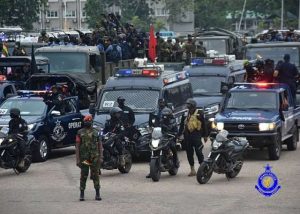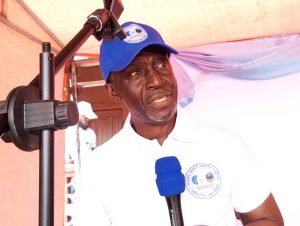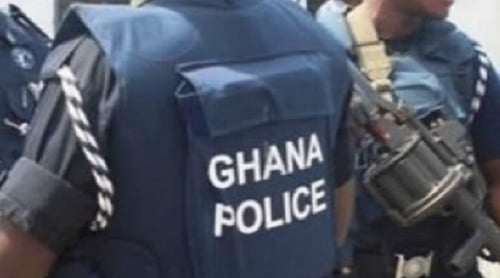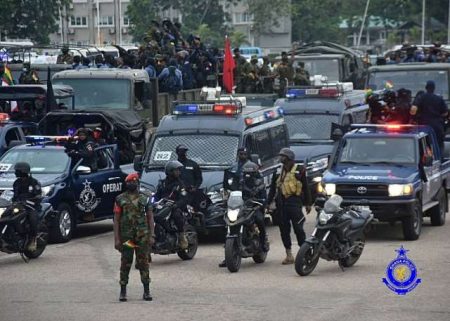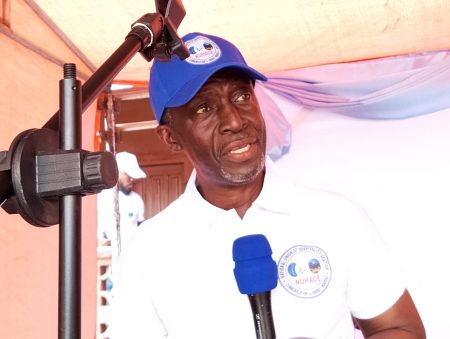The serene farming community of Sene-Dindee in Ghana’s Upper West Region became a scene of violence as ethnic clashes erupted between the Sissala and Dagaaba communities. Sparked by an initial misunderstanding, the conflict escalated rapidly, leading to the tragic death of a 75-year-old man and leaving several others injured. The escalating violence saw armed men from a neighboring settlement descend upon Sene-Dindee, firing indiscriminately and setting fire to a house, three motorbikes, and a tricycle. This sudden outbreak of violence underscored the fragile nature of inter-communal relations in the region and the potential for seemingly minor disputes to spiral into destructive conflicts. The incident prompted a rapid response from law enforcement and a concerted effort to restore peace and stability.
The immediate aftermath of the clashes saw the body of the deceased transported to St. Theresa’s Hospital in Nandom for preservation and autopsy, while the injured received medical attention at both St. Theresa’s Hospital and the Lambissie Health Centre. The Upper West Regional Police Command, recognizing the gravity of the situation, swiftly deployed personnel to the affected area. Their intervention focused on restoring order, investigating the incident, and ensuring the safety of the community. The police presence, marked by continuous patrols and monitoring, aimed to deter further violence and reassure residents of their security. In addition to maintaining order, investigators also recovered a cache of weapons from the scene, including four single-barrel guns, a bow and arrows, cutlasses, and other offensive implements. This discovery further highlighted the level of preparedness and intent behind the attack.
The official statement released by the Upper West Regional Police Command, signed by DCOP Mr. Darko Offei Lomotey, provided details of the incident, outlining the timeline of events and the police response. The statement confirmed the clashes originated from a disagreement between August 21st and 22nd, 2025, before escalating dramatically on the subsequent day. The statement also highlighted the retrieval of the aforementioned weapons and the establishment of sustained security patrols. Importantly, the statement conveyed the Regional Command’s commitment to ensuring the safety of all residents and urged the community to embrace peaceful conflict resolution mechanisms. This call for calm and cooperation underscored the importance of community engagement and dialogue in preventing further violence.
Beyond immediate security measures, the Regional Police Command recognized the importance of addressing the underlying tensions that fueled the conflict. To this end, DCOP Mr. Lomotey led a delegation to conduct community engagements in both Sene-Dindee and the neighboring community of Kouro on August 26th. These engagements aimed to facilitate open dialogue between the conflicting groups, build trust, and establish a framework for peaceful coexistence. By engaging directly with community leaders and residents, the police sought to de-escalate tensions, address grievances, and promote reconciliation. This proactive approach aimed to prevent any recurrence of the violence and foster a more harmonious environment.
The Sene-Dindee clashes serve as a stark reminder of the fragility of peace and the devastating consequences of ethnic tensions. The incident underscored the need for robust conflict resolution mechanisms, proactive community engagement, and a commitment to addressing the root causes of such conflicts. The swift response from law enforcement, coupled with their efforts to foster dialogue and reconciliation, offered a glimmer of hope in the aftermath of the violence. However, the long-term stability of the region hinges on the continued commitment of community leaders, residents, and government authorities to work together towards building a more peaceful and inclusive society.
The incident in Sene-Dindee also highlighted the complex interplay of factors that can contribute to inter-communal violence. While the immediate trigger was a specific disagreement, the underlying tensions likely stemmed from deeper historical, social, or economic factors. Land disputes, resource scarcity, political rivalries, and historical grievances can all contribute to a climate of mistrust and animosity between communities. Understanding these underlying factors is crucial for developing effective strategies for conflict prevention and resolution. Moving forward, it is imperative that all stakeholders work together to address these root causes, promote inter-communal understanding, and build a foundation for lasting peace in the region. Only through a sustained and concerted effort can the cycle of violence be broken and a future of peaceful coexistence be secured for the communities of the Upper West Region.



